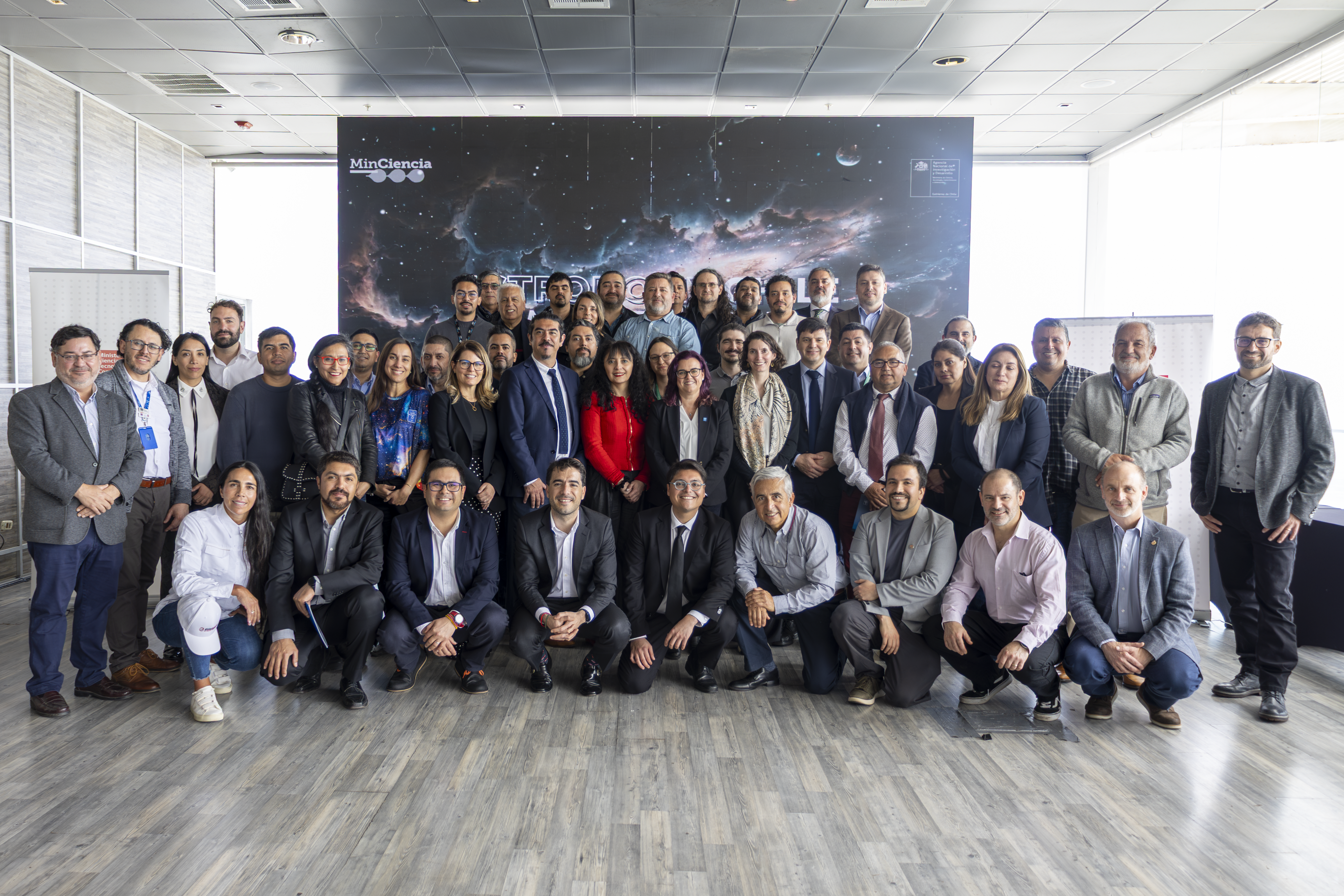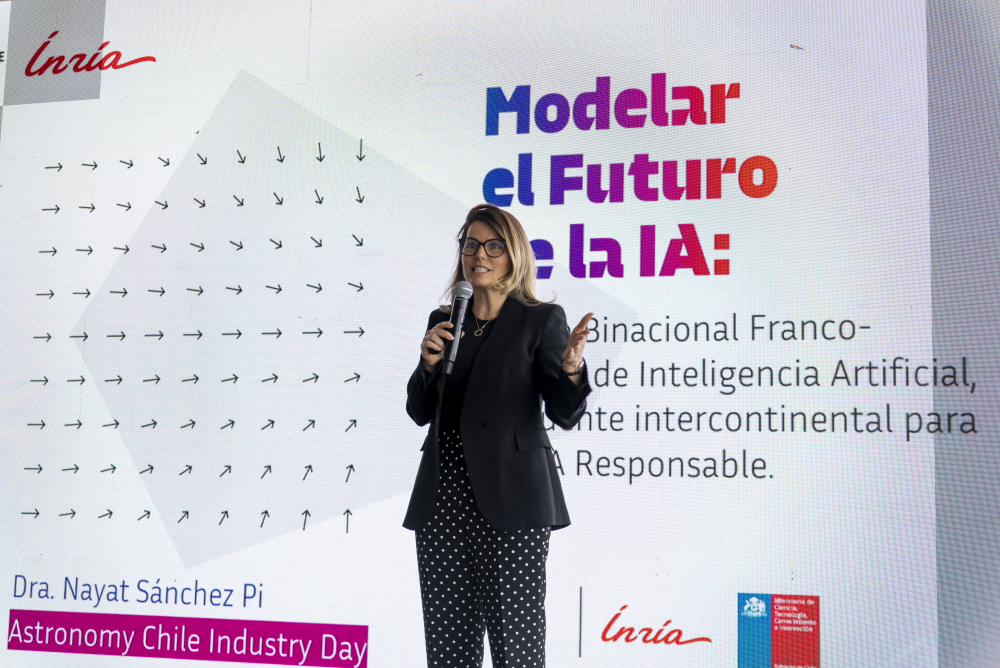
Linking cutting-edge science with industry challenges, Inria Chile took an active part in “Astronomy Chile Industry Day”. The initiative, driven by the Ministry of Science, Technology, Knowledge and Innovation and the National Agency for Research and Development (ANID), aimed to showcase technological capabilities developed around astronomy and transfer them to key productive sectors such as mining, energy and advanced manufacturing.
“Astronomy Chile Industry Day” served as a meeting point to connect developers of astronomy technologies with Chilean industry. The programme featured talks on innovation and success stories, and created spaces for dialogue, collaboration and technology transfer to facilitate direct collaboration between research centres, companies and institutions.
In the panel “Success stories: RDI centres as drivers of astro-technology development”, the Director of Inria Chile and Director of the Franco-Chilean Binational Center on Artificial Intelligence, Nayat Sánchez-Pi, spoke about Inria’s role as a key player in generating innovation and transferring knowledge. She set out the history and role of Inria Chile, the objectives of the institute as Inria’s only centre outside France, and the range of astro-computing projects developed to date.
Shaping the future of AI”: Inria’s vision at Astronomy Day
During the panel, Nayat Sánchez-Pi presented “Shaping the Future of AI: the Franco-Chilean Binational Center on Artificial Intelligence, an intercontinental bridge for responsible AI”. She outlined Inria Chile’s trajectory and capabilities, and how these have been applied to address the complex challenges of astro-engineering in Chile.
She underlined Inria’s leading role since 2018 as coordinator of the research and higher-education components of France’s National Artificial Intelligence Strategy — a state policy which, in its third phase, seeks to disseminate AI across all productive sectors.
A central thread of the presentation was Inria Chile’s strong and ongoing collaboration with Chile’s leading astronomical observatories, demonstrating with concrete cases how AI and computer science act as strategic partners for astronomy. Highlights included:
- Atacama Large Millimeter/submillimeter Array (ALMA): A long-standing collaboration that began in 2009 with Inria teams in France and expanded and diversified following the creation of Inria Chile in 2012. This collaboration has delivered crucial tools such as the ALMA Dashboard (a real-time, high-level monitoring system), a visualisation system for ultra-high-resolution astronomical images (FITS-OW), and the Integrated Alarm System (IAS), which centralises and manages operational alerts for the radio telescope.
- Vera C. Rubin Observatory: Inria Chile developed the L.O.V.E. (LSST Operator’s Visualization Environment) project — a visualisation environment for the telescope operators at the Association of Universities for Research in Astronomy (AURA) that enables near real-time monitoring of more than 4,400 parameters per second generated by the observatory.
- European Southern Observatory (ESO): She also highlighted the memorandum of understanding (MoU) signed in May 2024 for the digital transformation of operations at Paranal Observatory.
The Binational Center on AI: a bridge for scientific development
Sánchez-Pi connected this extensive experience in astro-computing with the mission of the new Franco-Chilean Binational Center on Artificial Intelligence, operated by Inria Chile. The Center plays a key role in scientific and technological exchange, acting as a unique bridge between the northern and southern hemispheres. It was born of a shared vision between both countries to develop AI in the service of humanity.
Among its objectives, the Director of Inria Chile and of the Center emphasised the mission to address grand challenges in AI, with a focus on developing safe AI for the common good, boosting science and sustainable development, and driving innovation and public policy.
Verbatim
Initiatives like this, which bring together the public and private sectors with research centres, are crucial to building an ecosystem that harnesses each actor’s competencies and capabilities in harmony. At Inria and Inria Chile, we have been working with the astronomical observatories based in Chile since 2009, and many of those capabilities have been successfully transferred to other sectors, such as agriculture, mining and climate-change research. Today, with the creation of the Binational Center on Artificial Intelligence, it is precisely these kinds of synergies that we aim to foster.
Director of Inria Chile / Director of the Franco-Chilean Binational Center on Artificial Intelligence

